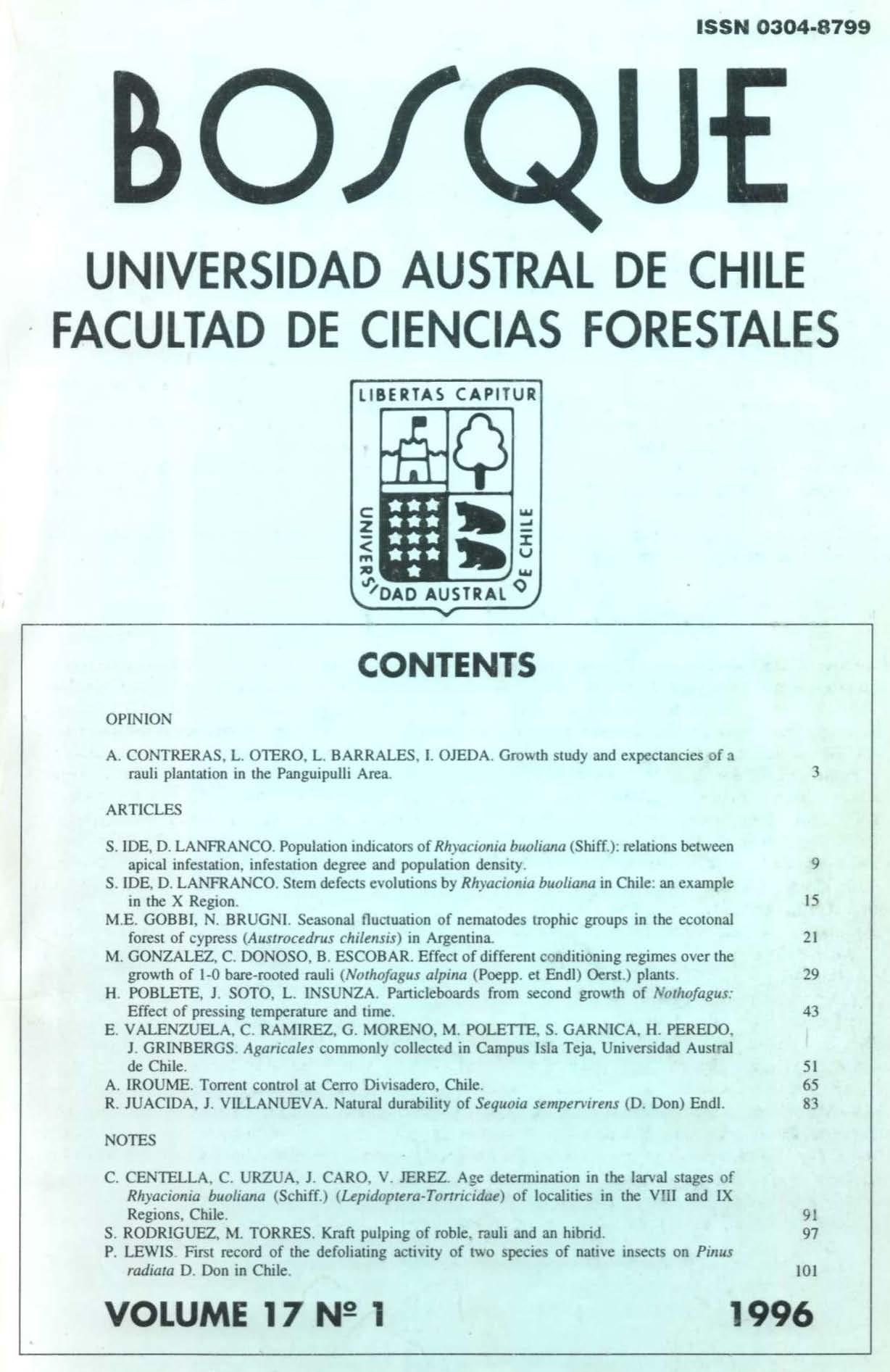Growth study and expectancies of a rauli plantation in the Panguipulli Area
Main Article Content
Abstract
Rauli was first planted in Chile during the nineteen fifties. However, there are no records as to the amount of hectares that were planted.
The principal plantation area, with three to four thousand hectares, is found in the Andes mountains in the Province of Valdivia (49° 45' S). Most of the plantations were done in the 1970's and they belong to the Complejo Forestal y Maderero Panguipulli as well as to other companies such as Bomasa S.A. or Emasil S.A.
The first plantations were done with plantlets taken form the forest, with no genetic selection, using elementary plantation techniques. Companies have only recently introduced the use of selected seeds, fertilizers and green houses. The 500 m2 plot was selected from a seventeen year old plantation. Growth information was obtained from stem analysis.
Results show a mean growth of 0.88 cm (dbh) per year and the maximun period of growth is 1.36 cm at the age of 10 years old. The mean height growth was 0.9 m per year and the maximum height growth was 1.14 m at the age of 8 years old. The projection of the total volume of the stand including the thinning is 658 m3 in 35 years of rotation, with desired final diameter of 36 cm (dbh).

